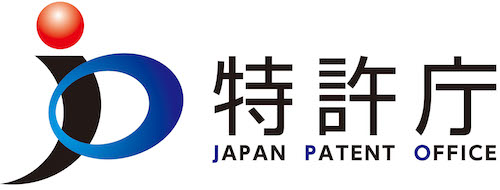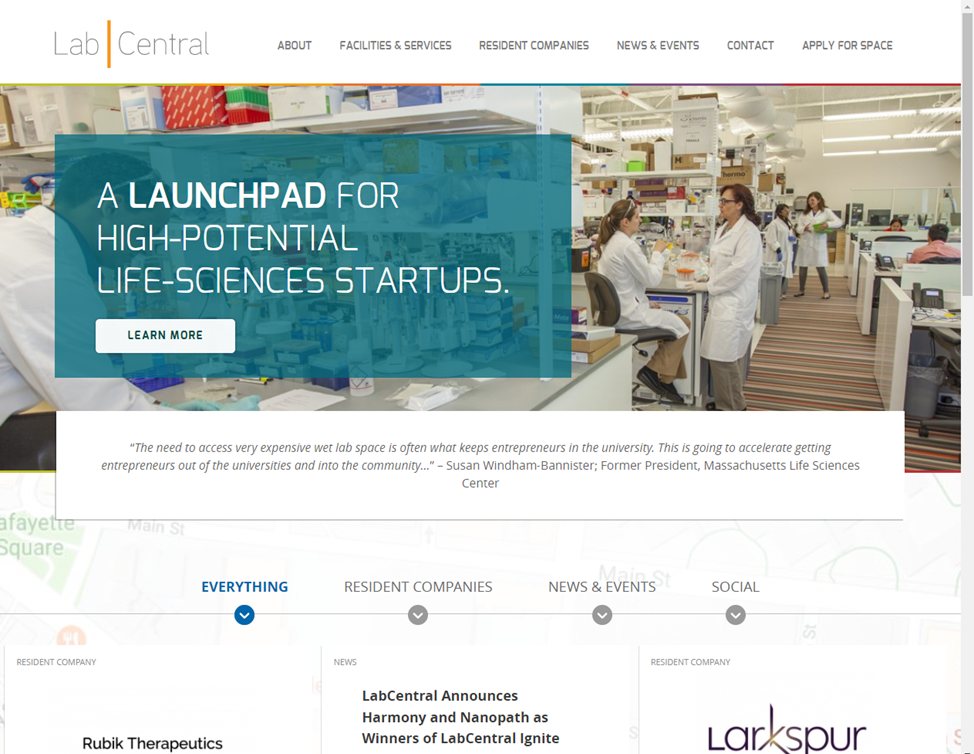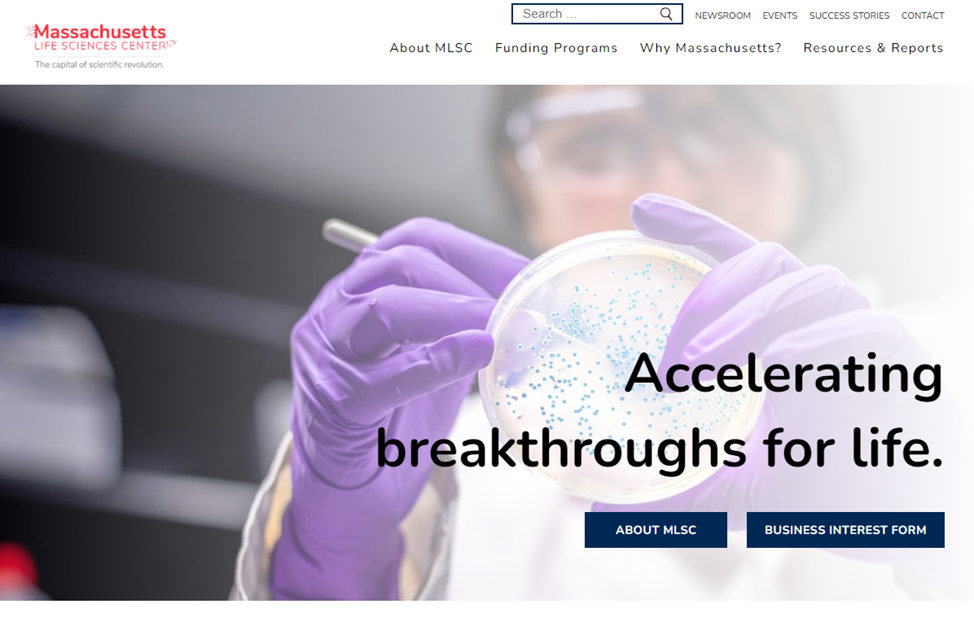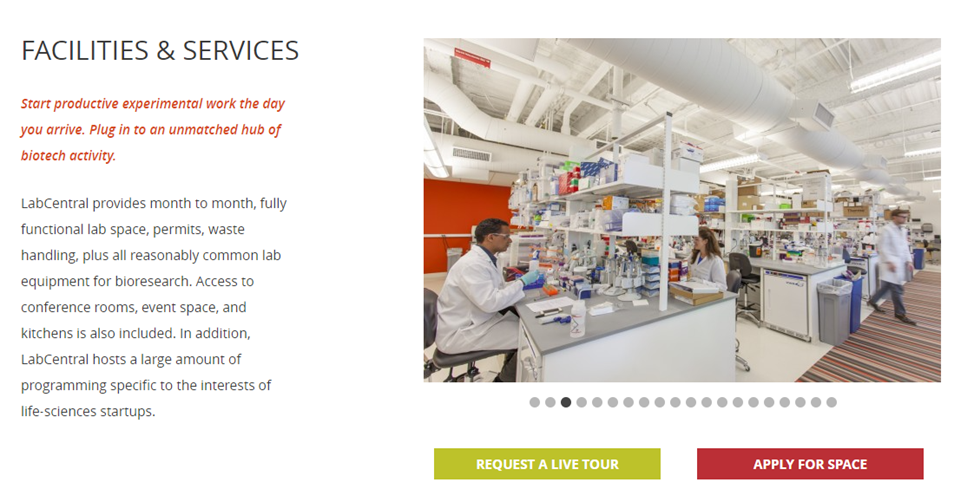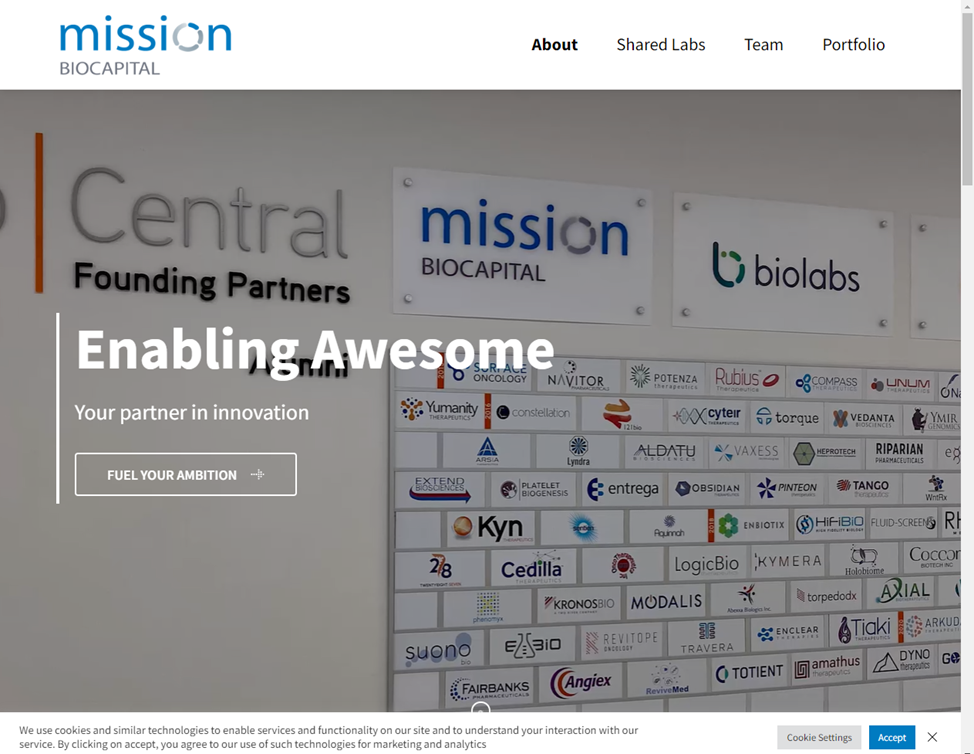IP BASE English Page
LabCentral創業者兼プレジデント ヨハンネス・フルハーフ(Dr. Johannes Fruehauf)氏インタビュー/Interview with LabCentral founder and president, Dr. Johannes Fruehauf.
全米で約400社弱が入居でラボは満員 米LabCentralがライフサイエンス系スタートアップに人気の理由/Across the whole of the United States, the Lab is full with roughly 400 companies as residents at the facilities of Lab Central and Biolabs.
米国のライフサイエンス系スタートアップから絶大な人気を誇り、入居希望者が絶えないインキュベータースペースのLab Central。自身も医師であるシリアルアントレプレナーの創業者、ヨハンネス・フルハーフ氏は15年以上、バイオテクノロジー領域でさらに上を目指す起業家たちを支えてきた。最新設備に留まらないLabCentralの魅力や設立の背景などについて、米ボストン在住の株式会社ファストトラックイニシアティブのバイスプレジデントである原田泰氏が話を聞いた。
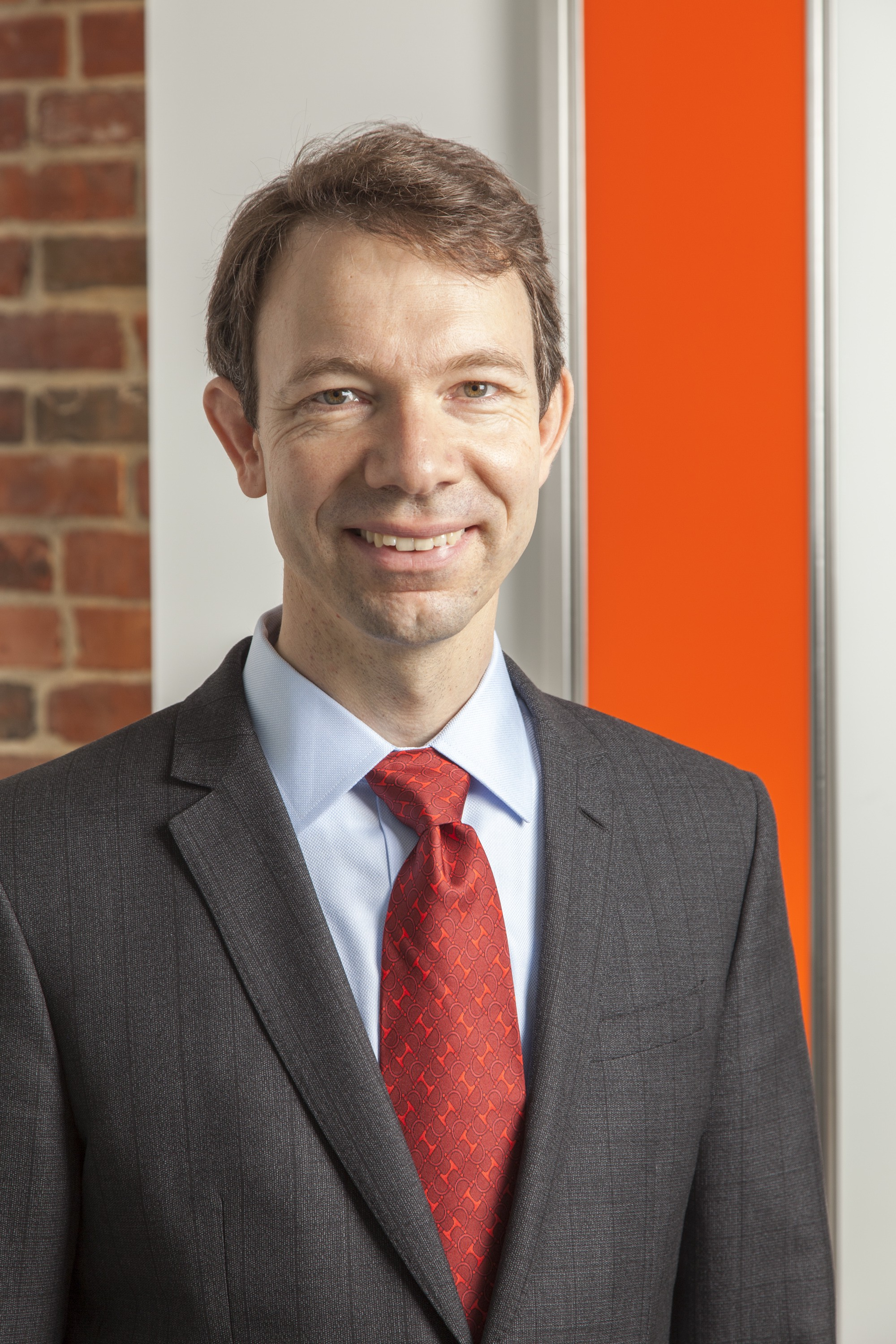
LabCentral創業者兼プレジデントのヨハンネス・フルハーフ(Dr. Johannes Fruehauf)氏
フランクフルト大学を卒業、ハイデルベルク大学で博士号を取得。医師として医療に従事したのち、バイオテクノロジー分野のシリアルアントレプレナーとして15年以上、同分野のスタートアップを支援してきた。現在は、LabCentralの創業者兼プレジデント、Cambridge BioLabsおよびViThera PharmaのCEO、Cequent Pharmaceuticalsの共同創業者、Mission BioCapitalの創業者兼ゼネラルパートナーなどを勤め、同分野のスタートアップ文化やエコシステムの養成に取り組む。
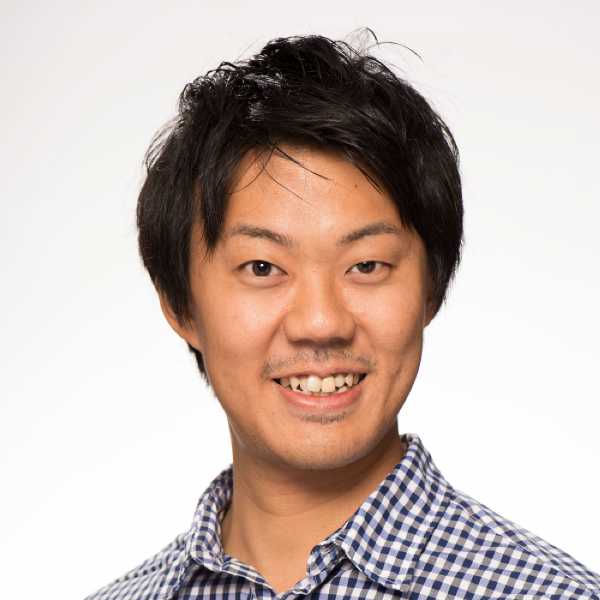
聞き手:株式会社ファストトラックイニシアティブのバイスプレジデントである原田泰(はらだ・たい)氏
東京大学大学院卒業後、マッキンゼー・アンド・カンパニーに入社し数々の戦略立案案件に従事。ジュニアマネージャーとして、製薬企業などのヘルスケア企業に対して新規事業立案・戦略立案のプロジェクトを牽引。その後、米国のシカゴ大学に留学。また、ライフサイエンス領域で数多くのユニコーン企業を生み出したARCH Venture Partnersにおいて投資コンサルタントとして創薬技術の投資評価を実施。またアクセラレーションファンドであるChicago Innovation Fundにおいても投資アソシエイトとして大学発スタートアップのへ投資を支援。武田薬品工業のボストンオフィスでは事業開発インターン・コンサルタントとして、がん、再生医療領域の事業開発活動に関与。2019年より株式会社ファストトラックイニシアティブに参画。東京大学工学系研究科化学生命工学専攻修士。シカゴ大学大学院経営学修士(MBA)。
インキュベータースペースで研究畑のスタートアップを支援
バイオテクノロジー領域で社会貢献と事業成功を目指すスタートアップが、こぞって押し寄せるインキュベータースペースがある。それが、米国のLab Centralだ。創業者でプレジデントのヨハンネス・フルハーフ氏は米ボストンで起業したとき、研究畑しか知らない大学院生やポスドクにとってビジネスの世界はあまりに未知の部分が多く、苦労したという。
「イノベーションの担い手が起業で成功すれば、本人たちの利益だけでなく、より良い医薬品が開発、提供されることで社会全体にも恩恵がある」。そう考えた同氏は、巡り巡って全員の幸せにつながることを目標にインキュベータースペースを始めたという。
2010年、フルハーフ氏はマサチューセッツ州ケンブリッジのケンドール・スクエアにBioLabsを創業し、Ipsen Innovation Center BioLabsやTufts Launchpad | BioLabsなど、アーリーステージのアントレプレナーや研究者のためのコラボレーションスペースを次々と設立。2013年には、マサチューセッツ州の助成金を活かした非営利組織Lab Centralを設立し、マサチューセッツ州のスタートアップを育てるホームベースを運営。このほか、投資会社BioInnovation Capital(現Mission BioCapital)を創業。両ラボの入居者への資金調達を主に行っている。
CAP:助成金とは、元マサチューセッツ州知事のデュヴァル・パトリック氏が2008年に制定した法。毎年1億ドルをライフサイエンス分野に投資するという10ヵ年計画に基づき、Massachusetts Life Sciences Centerを設立。バイオサイエンス分野の取り組みを支援した。
現在、BioLabsとLab Centralを合わせると全米10ヵ所以上にインキュベータースペースがあり、約375社のスタートアップが入居するという。「ボストンのほか、BioLabsはニューヨークやロサンゼルス、サンディエゴ、フィラデルフィアなどにも拠点がある。また米国以外でも、大手製薬会社の仏Servierと提携してパリ郊外に開設したイノベーションセンターがあるほか、ドイツのハイデルベルグにも建設が進んでいる」(フルハーフ氏)
ただの場所貸しではない、イノベーションを起こす空間
このようなインキュベーター事業は、さまざまな大学や製薬会社が以前から取り組んでいるが、成功例が少ないのが現状だ。「ボストンではバイオジェンやファイザーがスペースを運営していたが、うまく回らなくて数年で閉鎖した。大学付属のインキュベーションセンターも、例外はあるものの、大半は際立った成功事例を出せていない」とフルハーフ氏は述べる。
一方のBioLabsとLab Centralは、米国の生命科学分野では、シードおよびシリーズAの投資ラウンドにあるスタートアップの実に2割以上を輩出している。その理由を、「私たちがやっているのは不動産業ではなく、イノベーション事業だから」とフルハーフ氏は分析する。
フルハーフ氏によると、多くのインキュベーターは不動産業者が営んでおり、1㎡あたりの賃料で稼ぎ、入居者が支払い続ける限り利益になるので契約を更新する。だが、Lab Centralではどんなに成功しているスタートアップでも契約期間は2年までで更新はしない。
「誰もがスタートアップとして成功できる、いわば売り手の民主化を目指しているのかと言われこともあるが、そうではない。私たちが興味あるのは、秀でたものがない平凡な企業ではない。優れたアイデアにあふれ、科学に情熱を持ち、己のすべてを捧げられる科学者たちだ。そんな彼らが自らのイノベーションでより高みを目指すための基盤を提供している。
それは場所や設備を貸すだけではなく、製薬会社や投資会社を含むバイオテクノロジーのエコシステムへアクセスし、投資事業やビジネス開発などの考え方に触れ、人脈も構築できる場も提供する。強みを持っているチームがさらなる成功のチャンスをつかむための仕掛けがそこにはある。これが、他のインキュベーターとの根本的な違いだ」(フルハーフ氏)
モダリティーの多様化にも対応
イノベーション発信の場であるために、実験設備も最新鋭のものを導入している。
「ラボに入居するスタートアップの多くは、最近までMITやハーバードで最新設備の整った研究室で最先端科学を研究していた若者だ。特に最近はモダリティー(治療手段)の多様化が進み、ゲノムシーケンシングやシングルセルシーケンシングといった解析方法も多様化している。こうしたニーズに応えるため、私たちは最先端であり続けるため、電子顕微鏡や質量分析装置、フローサイトメトリーなどを導入し、装置のアップグレードに目を配っている」とフルハーフ氏は応える。
こうした設備の充実は、装置を製造するパートナー企業の協力で実現している部分もある。「BioLabsやLab Centralの入居者はパートナー企業にとっての潜在顧客。装置提供が最高のショーケースであることを知っている」。そう述べたフルハーフ氏は、ハイデルベルグの新設ラボではあるパートナー企業が200万ドル以上相当の実験装置を無償提供してくれたと明かす。
「科学の世界はものすごいスピードで進歩する。Lab Centralを設立したころは、CRISPR技術はメインストリームですらなかったが、今ではほとんどのバイオテクノロジー企業がこぞって採用している。そうした進歩に追いつき対応するのは大変だが、繰り返し同じことを続けるよりも刺激的で面白い」(フルハーフ氏)
刺激を請け合う仲間、広がる人脈
BioLabsやLabCentralの魅力は、設備面だけではない。バイオテクノロジー業界の関係者と接触する機会が多く、人脈の構築がしやすい環境である点も高く評価されている。たとえば同ラボではB2Cラウンドテーブルや講演会などを定期的に開催。また、パートナーである大手製薬会社や事業開発スペシャリスト、その他専門家とのミートアップも随時実施している。
切磋琢磨する仲間のコミュニティーがあることも、入居者のアドバンテージだ。アーリーステージからエクスパンションステージへステップアップするために必要なスキルや知識、投資会社との交渉術を先輩に学べる。
ビジネスで成功するには、企業経営についても学ぶ必要がある。投資家や潜在的なパートナー企業、製薬会社など、さまざまなステークホルダーと対等に対話し、交渉するスキルも身につけなければならない。同ラボは、一番小さいところでも15社前後のスタートアップが入居する。ラボの中心にはメイン通りのような廊下が走り、ガラス張りの研究室で自分とは少し違う領域の知識があり、経営などに関する経験値も違う仲間たちが研究開発に没頭しているのが見える。廊下ですれ違い、挨拶することで会話が始まることもある。気付けばコラボレーションする話になるかもしれない。
「たとえばLabCentralならばCEOが65人もいるので、たとえコミュニケーションが苦手であっても何人かと知り合えるはず。それだけでも、大学の研究室時代と比べれば何倍もの人脈になる。私は『摩擦を減らして、接触を増やす』と表現しているが、何十人、何百人単位のコミュニティーでのコミュニケーションの機会を創りたいと考えている。そうした彼らが巻き起こすインパクトは、彼ら自身の成功に加えて、社会への大きな恩恵となるはずだ」(フルハーフ氏)
残念ながら現在どこのラボもほぼ満席状態で、入居が非常に難しい状況と打ち明けるフルハーフ氏。だが、もちろんチャンスはある。入居審査に向けて、フルハーフ氏はこうアドバイスする。「入居審査ではチームの能力のほか、課題に対する理解度や解決のための手段などを見ている。個人的には、ピッチ資料は10枚から12枚程度に抑えて、審査担当者との質疑応答の時間をたっぷり設けるほうがいいと思う。これはVCへのプレゼンでも同様だ。コツは、プレゼン経験者に聞けばいい。たとえば同じVCにプレゼン経験があり、資金調達に成功した人に、相手が何を重視していたかを聞くなどだ」
特許の重要性と技術移転の課題
ラボへの入居審査やMission BioCapitalの投資時に、特許に関しても厳しく評価しているという。「特許を持っておらず、製薬の権利がない場合は入居審査を落とすことになる」と同氏は述べる。
「強い特許は成功を約束する。特許は防御になると同時に、攻撃力にもなる。回避されてしまうような弱い特許を作らないよう、良い特許事務所や弁理士とともに出願申請してほしい」(フルハーフ氏)
また、米国では学生または教員時代に発明したものはすべて大学組織もしくは研究所に権利が譲渡され、利用する場合は特許を管理する技術移転機関とライセンス契約する必要がある。これが起業のボトルネックになることもあるとフルハーフ氏は話す。
「技術移転に関わる手続きは複雑で大変だ。しかも、特許の技術移転および商用化の際に技術移転機関が高額なライセンス費用を設定するケースがある。あまりに高額すぎると、投資対効果のため投資会社から見放される可能性が高い。そして、そうした事実を研究者たちは知らない。せめて費用関連の情報を公式ウェブサイトで公開するなど、技術移転機関は透明性に取り組んでほしい」
なお、フルハーフ氏たちも昨今の投資会社のトレンドと同様に、VCであるMisson BioCapitalでスタートアップ創出も手がけており、特許管理もしているという。ARase Therapeutics、Arclight Therapeutics、Jupiter Bioventures、Telo Therapeuticsといった企業の場合、共同設立者として関わっている。そのほかの投資先では、PandionやTidalなどが著名だ。
次なる新たな取り組み:LabCentral 238
多数の展開が見受けられるが、あくまでフルハーフ氏が重視するのはスタートアップの成功とコミュニティーやエコシステムの円熟だという。
そんな中で始まったのが、「LabCentral 238」の立ち上げだ。遺伝子治療や細胞治療などの高度なバイオ製品の研究開発にフォーカスしたラボで、同領域のスタートアップが増えたことを受けて3~4年前から構想が始まり、2年をかけて新設された。
「特にバイオ製品はGMP(Good Manufacturing Practice)に則った製造が求められ、通常は受託製造開発業者と実施するが、その契約は大抵は非常に高額で要求もかなり厳しく、小さな企業よりも大企業を好む傾向が強い。どんなに優秀なスタートアップも契約で難航することがあり、次のステップに進めないこともある」(フルハーフ氏)
LabCentral 238では、高度な制御機能を持つバイオリアクターなど、高度なバイオ製品で必須の実験装置を導入。製法開発やFDA(米国食品医薬品局)への申請・登録に必要な分析評価を実施できる環境を整えた。現段階では受託製造開発業者との契約は自力で取得する必要があるが、いずれは同機能もカバーできるようにしたいとフルハーフ氏は展望を語る。
2021年11月のフェーズ1では、6社が入居。2022年夏のフェーズ2では10社ほどが入居予定だという。オープン前から入居希望者が殺到し、募集枠を一気に超えてしまったと明かすフルハーフ氏。入居予定のスタートアップはすでにかなりの資金調達を成功させており、今後の成長が楽しみと顔をほころばせる。
日本での事業展開については現在、チームと活発な議論を交わしており、前向きに検討中という。
「日本には優秀な科学者も多く、ポテンシャルが高いと感じている。東京、京都、筑波など、候補地も挙がっている。近い将来、実現できることを願っている」
LabCentral is extremely popular among US life science startups and has been attracting an unending number of prospective startups seeking to enter into LabCentral. Dr. Johannes Fruehauf who is himself a doctor and serial entrepreneur, has supported other entrepreneurs striving to be the best in the biotech field. Mr. Harada Tai who resides in the Boston of the USA and is Vice President of Fast Track Initiative inc., inquired regarding LabCentral’s appeal which far exceeds just having the newest of equipment and the background story of the establishment of the lab.

LabCentral, Founder and President, Dr. Johannes Fruehauf graduated from Frankfurt University
Medical School and obtained his PhD equivalent degree from Heidelberg University. After engaging in medical care as a doctor, he has been supporting startups for over 15 years as a serial entrepreneur in the field of biotechnology. Currently, he is working to foster a startup culture and ecosystems in the field as the founder & president of LabCentral, the CEO of BioLabs and the founder & general partner of Mission BioCapital.

Interviewer: Mr. Tai Harada, Vice President of Fast Track Initiative, Inc.
After completing a degree from the University of Tokyo graduate school, Mr. Harada joined McKinsey & Company where he engaged in numerous strategic planning projects. As a junior manager, he managed projects for new business planning and strategy planning for healthcare companies such as pharmaceutical companies. After that, he studied abroad at the University of Chicago in the United States. In addition, Mr. Harada conducted an investment evaluation of drug discovery technology as an investment consultant at ARCH Venture Partners, which created many unicorn companies in the life science field.
The Chicago Innovation Fund, an acceleration fund, also supports investment in university-launched startups as an investment associate. At Takeda Pharmaceutical Company's Boston office, Mr. Harada was involved in business development activities in the fields of cancer and regenerative medicine as a business development intern consultant. Participated in the Fast Track Initiative, Inc. from 2019.
Mr. Harada has a Masters of Chemistry and Biotechnology. He graduated from the School of Engineering of The University of Tokyo. Furthermore, he has a Masters of Business Administration (MBA) from the University of Chicago.
Supporting research field startups in the incubator space
There is an incubator space where many of the startups aiming for social contribution and business success in the biotechnology field are all rushing to get into with one accord. That is LabCentral in the United States. When founder and president Dr. Johannes Fruehauf started his business in Boston, he stated that the business world has far too many unknowns for graduate students and postdocs who only understand the theoretical research field and thus they would struggle in that world.
"If the leaders of innovation succeed with their startup, not only is it profitable for them but also for society as a whole due to the development and provision of better medicines." With that in mind, Dr. Fruehauf said he started the incubator space with the goal of leading to the happiness of everyone as he went from place to place with this aim.
Since 2010, Dr. Fruehauf established one venture after another: Biolabs in Kendall Square, Cambridge, in the state of Massachusetts of the USA, Ipsen Innovation Center BioLabs, Tufts Launchpad as well as a collaboration space for early-stage entrepreneurs and researchers. In 2013, he founded Lab Central, a non-profit organization that leveraged Massachusetts grants to run a home base to grow Massachusetts startups. In addition, he co-founded the investment company, BioInnovation Capital (currently Mission BioCapital). It mainly raises funds for residents of both laboratories.
CAP: Financial grants were established due to the law regarding grants enacted in 2008 by former Massachusetts Governor, Deval Patrick. The Massachusetts Life Sciences Center was established based on the 10-year plan to invest 1000 million ($1bn) USD in the Life Sciences field. The center supports efforts in the field of bioscience.
Currently, there are more than 10 incubator spaces in the United States including BioLabs and LabCentral. It is said that about 375 startups will move into the incubator space. "In addition to Boston, BioLabs has offices in New York, Los Angeles, San Diego, and Philadelphia. Outside of the United States, innovation centers opened in the suburbs of Paris in partnership with a major pharmaceutical company, Servier (French company). As well in Germany, construction is underway in Heidelberg, " explained Dr. Fruehauf.
Not just a rental place but a space that brings about innovation
Various universities and pharmaceutical companies have been working on such incubator businesses for some time, but the current situation is that there are few successful cases. "In Boston, Biogen and Pfizer ran the space, but it didn't work and closed in a few years. Most of the universities' incubation centers haven't had any noticeable success stories with only a few exceptions," Fruehauf says.
On the other hand, BioLabs and LabCentral have produced over 20% of startups in seed and series A rounds in the life sciences field in the United States. "We're not in the real estate industry, we're in the innovation business," proudly states Dr. Fruehauf.
According to Dr. Fruehauf, many incubators are run by real estate operators, who earn income through rent per square meter and renew their contracts as long as the occupants continue to pay. At LabCentral, no matter how successful a startup, the contract only lasts up to two years and doesn't renew.
"Our goal is to generate innovation and give back to society while contributing to the growth of these companies. For example, in 2020, LabCentral startups conducted 46 clinical trials with more than 1,300 participants in the trials. I know from experience that innovations that provide great value to society lead to financial success. "
Above all, Dr. Fruehauf says that he loves to be able to work with excellent people.
It is not only about getting rental payments or lending equipment, but more-so to provide a place where enterprises can access a biotechnology ecosystem which include pharmaceutical companies and investment companies and get in touch with ideas regarding business investments and business development. And to develop personal connections. It is like we have unlocked a mechanism for building strong teams and increasing the chance of further success. This is the fundamental difference with other incubators," says Dr. Fruehauf.
Supporting modality diversification
Because the incubation space was created to generate innovation, we have introduced state-of-the-art experimental equipment in the facilities.
"Many of the startup tenants in the space are comprised of young people who until recently were studying cutting-edge science in state-of-the-art laboratories at MIT and Harvard. Especially considering the recent diversification of modalities and genomes, analytical methods such as sequencing and single-cell sequencing are also diversifying. To meet these needs, we will continue to be at the cutting edge by introducing electronic microscopes, mass analyzers, flow cytometry and upgrading the equipment. I'm paying close attention to it,” Dr. Fruehauf responds.
The enhancement of equipment is partly realized with the cooperation of partner companies that manufacture equipment. "BioLabs and LabCentral tenants are potential customers for our partners. We know that equipment offerings are the best showcase." Dr. Fruehauf said that partner companies for Heidelberg's new lab provided free experimental equipment worth more than 2 million USD.
"The world of science is advancing at a tremendous rate. When LabCentral was founded, CRISPR technology wasn't even mainstream, but it's now being adopted by most biotechnology companies. It's tough to catch up with all the progress, but it's more exciting and interesting than doing the same thing over and over again,” says Dr. Fruehauf.
Partners who promise stimulation and expanding personal connections
BioLabs and LabCentral aren't just about equipment. There are many opportunities to come into contact with people in the biotechnology industry in our facilities. An environment that makes it easy to build personal connections is also highly valued in business. For example, the labs regularly hold B2C roundtables and lectures. We also hold meetings with major pharmaceutical companies, business development specialists, and other experts as there is need for.
It is also an advantage of residents that there is a community of associates who fully apply themselves in all they do. You can learn the skills and knowledge necessary to step up from the early stage to the expansion stage and how to negotiate with investment companies from those who have been where you are now.
To be successful in business, you also need to learn about business management. You must also acquire the skills to interact and negotiate with various stakeholders on an equal footing such as investors, potential partners, and pharmaceutical companies. The labs are home to at least 15 startups in even the smallest facilities. In the center of the labs, there are corridors like the main pathway. In the glass-walled laboratories, you can see that colleagues who have knowledge of areas slightly different from your own and who have different experience points in management etc. are absorbed in research and development - making them accessible to you to learn from and exchange with. Sometimes conversations begin when you pass each other in the corridors and say hello. If you notice it, it may be the next big collaboration story.
"For example, LabCentral has 65 CEOs, so even if you're not good at communication, you should be able to get to know some people. That alone will make you many times more connected than when you were just in a university laboratory. We want to create opportunities for communication in communities with dozens or hundreds of people. The impact these connections create is an addition to their own success. It should be a great benefit to society,” explains Dr. Fruehauf.
Unfortunately, Dr. Fruehauf confesses that it is very difficult to move into the incubator space because all the labs are nearly fully occupied now. Of course, there still is a chance. For the move-in inspection, Dr. Fruehauf advises: "In the move-in inspection, we look at the team's abilities, understanding of the problem they seek to engage with, and their means for solving it. Personally, I limit the number of pitch materials to about 10 to 12 pieces of paper and ask questions along with the examiners to the pitching entrepreneurs. I think it's better to have plenty of time to respond. This is the same for presentations to VCs. The trick is to ask someone who has experience in presentations. For example, ask someone who has presented to the same VC you will present to. Ask them what the VC focused on in their response to the presentation,” expounded Dr. Fruehauf.
The importance of patents and issues regarding technology transfers
It is said that patents are also rigorously evaluated when moving into the lab and investing in Mission BioCapital. "If you don't have a patent and you don't have the right to medicine, you'll fail the move-in inspection," said Dr. Fruehauf.
"Strong patents promise success. A patent is both a defensive and offensive force. I hope all those interested would apply with a good patent office or patent attorney to avoid making weak patents that can be easily evaded," expressed Dr. Fruehauf.
Furthermore, in the United States, all inventions made while the students or faculty are researching are transferred to the university organization or research institute at which they brought about these inventions. And if you want to use them, you need to enter into a license agreement with a technology transfer organization that manages patents. Dr. Fruehauf explained that this can be a bottleneck for entrepreneurship.
"Procedures related to technology transfer are complicated and difficult. Moreover, there are cases where technology transfer organizations set high license fees for technology transfers and commercialization of patents. If the costs are too high, there is a high probability that the inventions will be rejected by investment companies as the rate of ROI (return on investment) will be seen to be too low. As these are likely to be abandoned by the companies, researchers are unaware of that fact. We want technology transfer organizations to work on transparency at least by publishing cost-related information on their official websites. "
In addition, Dr. Fruehauf and his associates are also working on bringing about startups and patent management at the VC Mission Bio Capital which is similar to the trend of investment companies these days. They are involved as co-founders for companies such as ARase Therapeutics, Arclight Therapeutics, Jupiter Bioventures, and Telo Therapeutics. Other companies they invest in include Pandion and Tidal.
The next new initiative: LabCentral 238
While there are many developments, Dr. Fruehauf emphasizes the success of startups and the maturity of the community and ecosystem.
Among all that development of startups was the beginning of the launch of "LabCentral 238". The laboratory focuses on research and development of advanced bio-products such as gene therapy and cell therapy. The concept started 3 to 4 years ago in response to the increase in startups in the field and was finally established over 2 years.
"In particular, the manufacturing of bio products is required to be undertaken in accordance with GMP (Good Manufacturing Practice) and is usually contracted to designated trusted manufacturing developers. Meanwhile, the contracts are usually very expensive and demanding and thus, there is a tendency to prefer awarding these contracts to large companies rather than small companies. No matter how good a startup may be, it may not be possible to take the next step in acquiring these sought-after contracts,” says Dr. Fruehauf.
LabCentral 238 introduces essential experimental equipment for advanced bio products such as bioreactors with advanced control functions. We have created an environment in which the analysis and evaluation necessary for manufacturing method development and application as well as registration with the FDA (US Food and Drug Administration) can be carried out smoothly. At this stage, it is necessary for the startup to obtain a contract with a contract manufacturing developer on their own. Meanwhile, Dr. Fruehauf says he wants to aid the incubator space tenants with this stage as well by helping them to obtain these contracts.
In Phase 1 as of November 2021, six companies will move into the incubator space. About 10 companies are scheduled to move in during Phase 2 in the summer of 2022. Dr. Fruehauf reveals that he has been flooded with applicants even before the opening of the facilities and had exceeded the recruitment limit all at once. The startups that are planning to move in have already successfully raised a considerable amount of capital. We are looking forward to seeing their future growth.
Currently, he is actively discussing business development in Japan with the team and is positively considering opportunities in Japan.
"There are many excellent scientists in Japan, and I feel that they have great potential. There are also candidate sites such as Tokyo, Kyoto, and Tsukuba. It is my wish that we can achieve development in Japan in the near future,” exclaimed Dr. Fruehauf.
